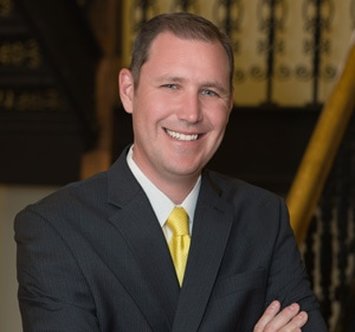 Trump, Spicer and Sessions: Why We’re Not Panicking and You Shouldn’t EitherOver the past two weeks, comments from certain members of the Trump Administration, including Press Secretary Sean Spicer and Attorney General Jeff Sessions, have given the marijuana industry plenty to talk about. At a multi-topic press conference on February 23rd, one quick question to Spicer about Trump’s priorities for federal enforcement of marijuana laws led to an off the cuff response in which he tied marijuana to the national opioid crisis and speculated that increased enforcement was likely. The backlash was fast and furious. Eight years of the Obama White House has resulted in a level of comfort for state-legal medical and adult use marijuana businesses that has never been guaranteed under the current Trump administration. These types of comments should not come as a surprise to industry members who are highly risk-tolerant and whose success has come in the face of continuous uncertainty since 2009. As all of us already know, medical and adult use marijuana markets serve two vastly distinct groups of consumers in states where they are both legal. And while Sean Spicer's comments comparing the national opioid crisis and the demand for adult use marijuana are highly ignorant, we cannot expect the current Trump administration to truly understand the difference considering their lack of experience and interest in the reality of how this industry functions. Public opinion and current momentum certainly support the continued growth of state-legal, highly regulated marijuana markets across the country. The recent formation of the Congressional Cannabis Caucus is evidence of this as well as the response to Spicer's comments from Washington's Attorney General Bob Ferguson. Senators in Oregon and Nevada are calling for similar support from their state attorneys general. Sure enough, it wasn’t even a full weekly news cycle before Attorney General Jeff Sessions started to distance himself and the Department of Justice from Spicer’s remarks via private meetings with certain members of Congress who urged him to avoid a crackdown on the marijuana industry. “[Sessions] told me he would have some respect for states' right on these things,” said Sen. Rand Paul (R-KY) in an interview with Politico. “And so I’ll be very unhappy if the federal government decides to go into Colorado and Washington and all of these places. And that’s not the [what] my interpretation of my conversation with him was. That this wasn’t his intention.” And since he was confirmed, Sen. Cory Gardner (R-Colo.) said administration officials have left him with the impression there is no big policy change coming. "Nothing at this point has changed," Gardner told Politico. Comments made by Jeff Sessions prior to and during his confirmation hearings set the tone that this issue is of low priority to the Trump administration, going so far as to encourage Congress to pass laws to change marijuana laws if current laws are no longer in line with the will of the American people. Spicer's comments yesterday were short and deferent to AG Sessions and the Justice Department, who have been instructed to follow Trump's campaign platform that marijuana policy is a state issue, not a federal one. Eight years ago, it was hard to imagine that marijuana would be the issue to unite Democrats and Republicans from across the country and encourage them to reach across the aisle. But, in the face of a crackdown by the federal government of an industry that, nationally, is expected to eclipse $50 billion by 2026, it shouldn’t be altogether surprising. So for now, we aren’t panicking and we’re advising our clients to do the same. We of course remain diligent and committed to our work with U.S. Rep. Jared Polis, a member of the Congressional Cannabis Caucus, in support of his efforts there on behalf of our industry. In the absence of laws that could and should be passed to cement this industry’s legitimacy, nothing is guaranteed. Written for New Frontier by Robert T. Hoban
0 Comments
Leave a Reply. |
 RSS Feed
RSS Feed
